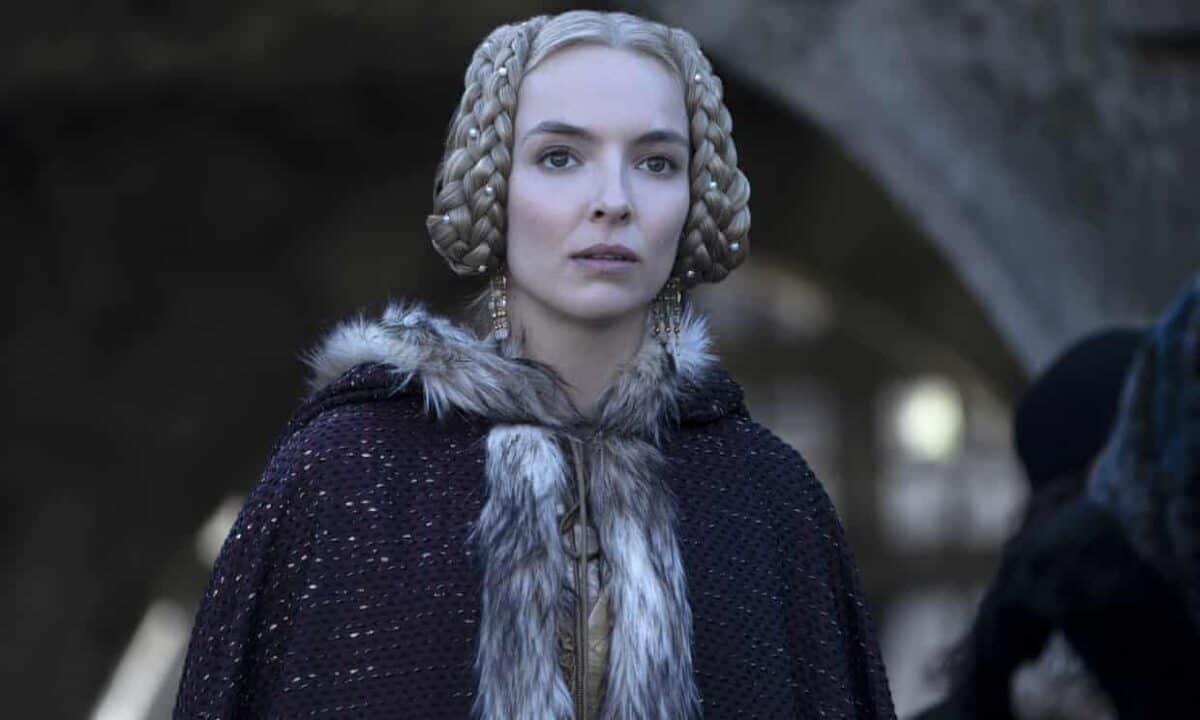Screenplay by Nicole Holofcener, Ben Affleck, Matt Damon
Based on the Books by Eric Jager
Starring Matt Damon, Adam Driver, Jodie Comer, Harriet Walter, Ben Affleck
2021 | R | 2h 32min
Matt Damon and Ben Affleck are long-time friends and collaborators who first struck cinematic gold with Good Will Hunting in 1997.
Now, 25 years later, they are producing and starring in The Last Duel, a combination of mystery, thriller and action set in 1386 Normandy. The film is adapted from a nonfiction book by Eric Jager, a UCLA specialist in medieval literature, and is currently showing in movie houses.
The crime is rape. Marguerite de Carrouges (Jodie Comer) tells her husband that his friend and colleague Jacques Le Gris (Adam Driver) assaulted her. Jean de Carrouges (Matt Damon) demands satisfaction as a point of honor and petitions their feudal overlord, Count Pierre d’Alencon (Ben Affleck), to permit Jean to challenge Jacques to a duel.
When Count Pierre refuses, Jean appeals to the courts, requiring a public hearing where Marguerite is questioned closely by skeptical, black-robed men as to whether this crime actually happened. Pregnant and without a soul on her side, the young wife perseveres and stands her ground.
Because the argument between the vassals is about their honor, and not about whether Marguerite has been harmed, this duel must be to the death. In the gaiety leading up to the duel, as nobility and royalty fill the grandstands with a festive air, no one quite seems to understand what this means.

This film is captivating because superior writing, acting, staging and directing put the audience right there — during the rape and during every moment of the duel. You cannot turn away.
Chapter one depicts the rape from the point of view of Jean, the husband who won his knighthood on the battlefield, and who drove a hard bargain to gain a generous dowry before he agreed to accept Marguerite as his wife.
Chapter two gives us the sexual encounter from Jacque’s perspective, the ambitious squire and ladies’ man who charms his way into the favor of their powerful overlord, Count Pierre.
It has been said that Rashomon (1950) by Akiro Kurosawa is the “finest film ever to investigate the philosophy of justice.”
Chapter three was written by Nicole Holofcenter, who was charged with the daunting task of reimagining Marguerite’s rape. At one point we see young Marguerite sitting on a rug playing with a puppy as her father and Jean argue over the size of her dowry, and whether she is strong enough to bear an heir for Jean’s family. She is a prize to be won.
Marguerite was taught to read and write, rare accomplishments for women of that era. Even her war-hero husband has to sign his name with an X when he travels to Paris to collect payment for his service to King Charles. She effectively takes control of record-keeping for her husband’s estate while he is away at war, collecting tribute from tenant farmers and overseeing livestock. Yet she cannot bring a rape charge without the support of her husband.
WATCH: The Last Duel | Official Trailer
It has been said that Rashomon (1950) by Akiro Kurosawa is the “finest film ever to investigate the philosophy of justice.” Directed by Ridley Scott, The Last Duel aims to do just that, as we examine three versions of the rape, and then observe an infuriated husband as he pursues all the steps necessary to persuade the young king to allow him to throw his glove at the feet of his enemy, to challenge his former friend, Jacques Le Gris, to a duel.
Suspense is built up powerfully. Marguerite stands silent as she is dressed by maidservants before appearing on this auspicious day. She will sit alone, a pariah, awaiting her fate from the results of the trial by combat. If her husband wins, she gets to live. If Jacques kills her husband, then Marguerite will be stripped naked and burned at the stake.
Jean and Jacques are dressed carefully by silent manservants who handle their gleaming armor and multiple weapons. Two war horses are brought onto the battleground. The combatants acknowledge the king’s presence. What happens next is just plain stunning.
Eric Jager’s book is subtitled “a true story of crime, scandal and trial by combat in medieval France.” Certainly worth a read, but remember to see this film first, to experience the full power of its re-creation of the last judicially sanctioned duel.


